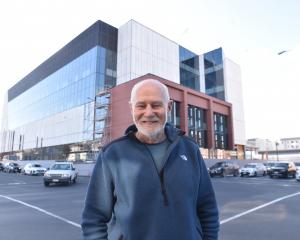
However, he cannot as yet commit his party to reversing the cuts to the scope of the hospital announced by Te Whatu Ora just before Christmas.
"As the local MP, I will be strongly advocating for the project to be built according to the detailed business case that was signed off by this Government," Mr Woodhouse said yesterday.
"It is what I am advocating for and that is what the community expects of the government of whatever colour."

Those included reducing the number of beds and operating theatres from what was originally proposed, not initially installing a PET scanner, and "shelling" some rooms rather than initially fitting them out.
Mr Woodhouse, a former hospital chief executive, said that the most immediate and effective cost saving Te Whatu Ora could make on the new Dunedin Hospital was to sign up a lead contractor as soon as possible.
"We need to get the thing tendered and know what we are dealing with rather than speculate," he said.
"They are talking about what the final cost is likely to be but until they put the thing out to tender they are not going to know. It needs to be done, with haste."
Once a contract was signed, cost savings might be able to be found through use of different materials or changing timelines without compromising the clinical requirements for the hospital, he said.
Mr Woodhouse also urged that the idea of shelling be abandoned as it would not lead to cost savings.
"The reality is that once we are done that other projects will take precedence and if we leave this $100 million or $200 million short of what we need to deliver services then you are going to be behind the likes of Whangarei, Hastings, Nelson, Timaru and Invercargill and potentially even behind the southern region’s own need to replace Wakari Hospital.
"Those shells, if not fitted out on day one, are going to be, I think, a tremendously low priority."
National’s leadership has been reluctant to attack Labour directly over the progress — or otherwise — in building the new hospital. When in Dunedin last month party leader Chris Luxon deferred questions on the hospital to his southern MPs.
The spiralling costs of the hospital, which has already had its budget increased twice before the tender to build the larger inpatient building has even been let, have likely spooked National from wanting to pledge to fund a project which might yet prove to be more expensive than its new higher budget.
Last week Health Minister Andrew Little said the new hospital would be "state-of-the-art" and would suit the needs of Dunedin.
He said that despite the cuts that the project was "future-proof" and there would be space to make additions later.
"These are buildings that will last between 50 and 75 years — with that time there are other capital projects that will be considered."











